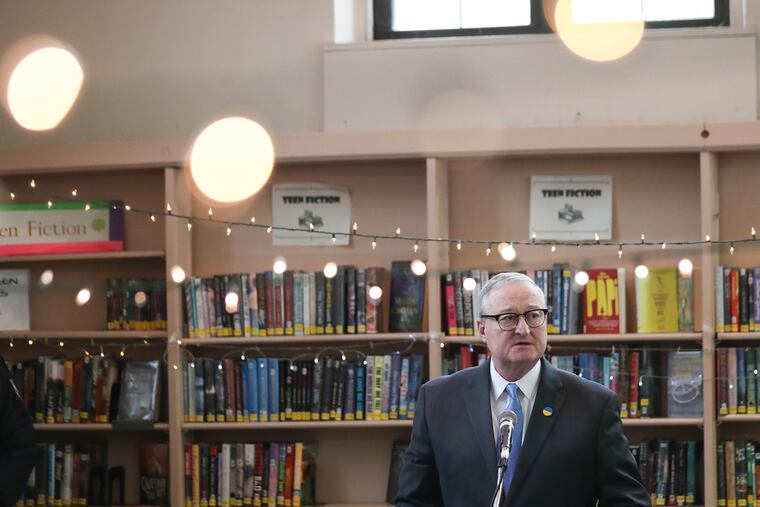What Philly and its suburbs stand to get from opioid lawsuit settlements
According to the state attorney general’s office, Pennsylvania can expect more than $2 billion in opioid settlement funding from various lawsuits negotiated by the attorney general.

Over the last year, a number of states and municipalities around the country have entered into settlements in massive lawsuits against companies that sold and advertised the opioid painkillers that are widely blamed for kickstarting an addiction crisis and skyrocketing overdose deaths.
According to the state Attorney General’s Office, Pennsylvania can expect more than $2 billion in opioid settlement funding from various lawsuits against opioid manufacturers, distributors, consulting groups, and pharmacies. And that total negotiated by the office doesn’t include potential funds from suits that counties and cities have filed on their own, outside of the attorney general’s suits.
Here’s a breakdown of what Philadelphia and its suburban counties expect to receive.
Philadelphia
On Jan. 5, Philadelphia announced its initial plans for an estimated $200 million that it will receive over 18 years from Johnson & Johnson, AmerisourceBergen, Cardinal Health and McKessen Corp. — part of a settlement in a nationwide lawsuit distributing funds to communities around the country affected by the opioid crisis.
The first payout in the Johnson & Johnson suit brought $20 million to the city. Funds will go to several community-based initiatives aimed at helping people in addiction and supporting Philadelphia communities grappling with an overdose epidemic that killed a record 1,276 people in the city in 2021. Among the initiatives are mobile methadone vans that can get people quickly into addiction treatment and funding to help repair homes and parks in Kensington, the neighborhood most affected by the opioid crisis.
» READ MORE: Mobile methadone clinics are among the initiatives Philly will fund with opioid settlement funds
Mayor Jim Kenney and District Attorney Larry Krasner initially opposed then-Attorney Gen. Josh Shapiro’s settlement negotiations in the Johnson & Johnson suit, saying the payout was too low. But Kenney eventually signed on to the settlement. Krasner has sued Shapiro over it, saying the Attorney General’s Office couldn’t settle on his office’s behalf. His office still has a lawsuit pending against opioid distributors AmerisourceBergen, McKesson, and Cardinal Health.
Delaware County
In 2017, Delaware County became the first county in Pennsylvania to file a lawsuit against opioid distributors and manufacturers, said county solicitor William Martin. That meant the county participated in “full litigation,” Martin said, including the discovery process — and so will receive about $56 million from three opioid distributors and drug manufacturer Johnson & Johnson, as well as $13 million more to cover costs from its litigation.
As in several other suburban Philadelphia counties, Delaware County’s district attorney filed his own lawsuit against opioid manufacturers.
Martin said the county is also expecting to receive funds from a $13 billion settlement in lawsuits against CVS, Walgreens, and Walmart, as well as a settlement of $4 billion to $6 billion from drug companies Teva and Allergan. The exact funding Delaware County will receive from those settlements is still unclear.
Delaware County also expects to receive funds from the bankruptcy proceedings from pharmaceutical companies Purdue and Mallinckrodt, and plans to submit a claim in the Endo Pharmaceuticals bankruptcy as well. It still has legal claims remaining against Rite Aid, Martin said.
Bucks County
The District Attorney’s Office in Bucks County has received its first payment from its own $4.5 million settlement with opioid manufacturers and distributors, a spokesperson for the office said. The office also has litigation pending against other manufacturers who have not yet settled, and also plans to receive funds from the recent pharmacy settlements.
The county itself, separate from the District Attorney’s Office, expects to receive about $45 million over 18 years from its own lawsuit, according to a news release from the county. County officials say a top priority is to spend $900,000 on a behavioral health crisis center in Doylestown, the county seat, as well as to expand naloxone distribution and fund housing for women and children.
Montgomery County
Montgomery County has set up a “multi-agency group” to develop a spending plan for about $35 million in funds that it will receive as part of a settlement between opioid distributors and J&J, said county spokesperson Kelly Cofrancisco.
Among the county’s plans are the opening of a behavioral health crisis center and enhancing the county’s overdose response team. That team sends a specially trained paramedic and a certified recovery specialist to respond to overdose cases in the county.
“Current funding permits only one team for the county, but we hope to be able to use some of the settlement funds to increase the number of [response] teams and in-service hours for the program,” Alvin Wang, the county’s chief medical officer, said in an email.
Chester County
The Chester County District Attorney’s Office expects to receive $3.7 million from the Johnson & Johnson suit; the county as a whole will receive $19.7 million over 18 years. County commissioners said in September that they plan to use the funds to support prevention programs, opioid addiction treatment, and help for parents with addiction and babies exposed to opioids in utero, among other goals.
The county is currently deciding whether to participate in national settlements with other opioid manufacturers and distributors, officials there say.